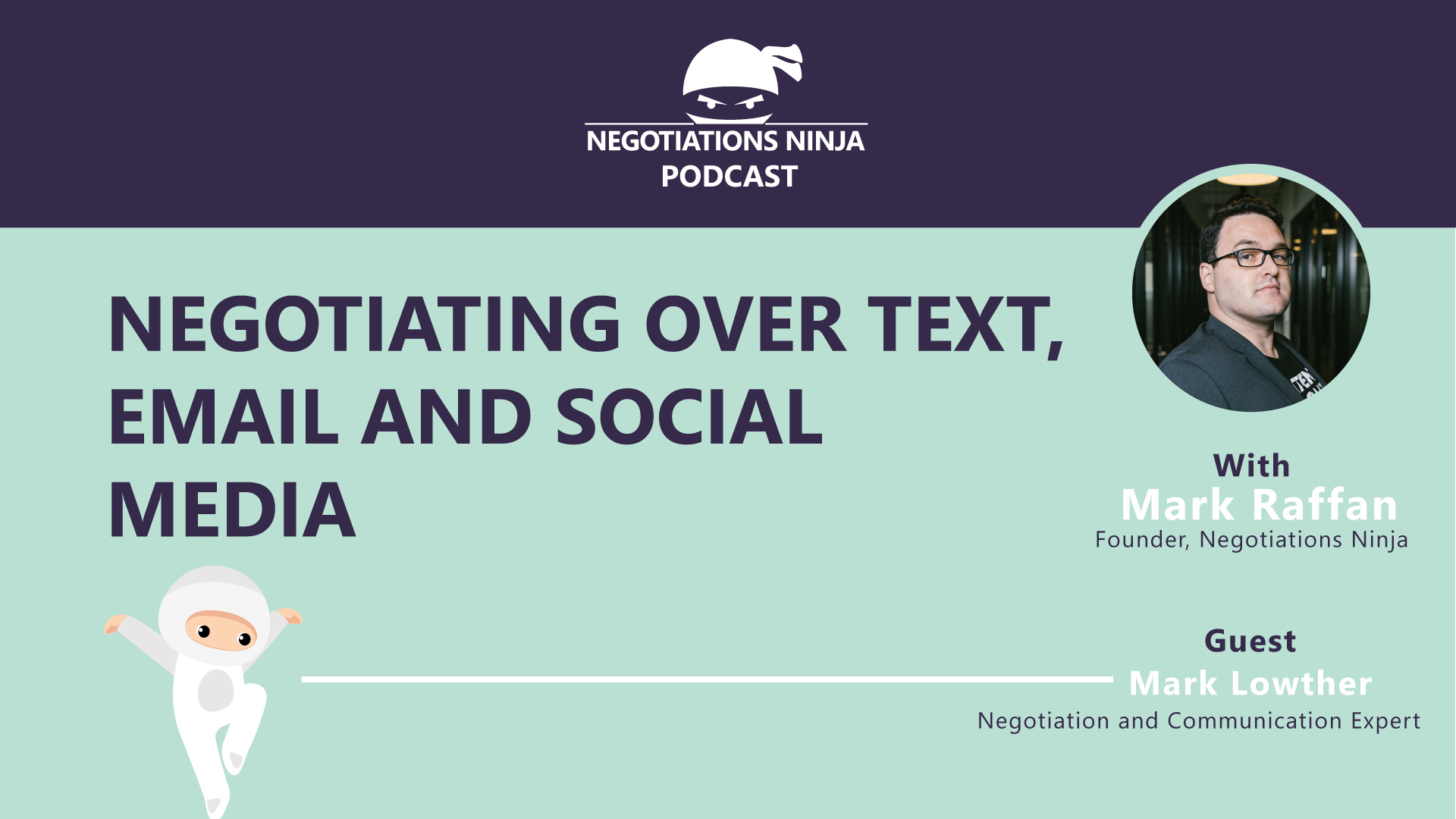Negotiating over text, email, and social media is sadly becoming a reality that we must learn to navigate. So how do we work best with those text-based mediums in our negotiations? Mark Lowther—a negotiation and communication coach and former crisis and hostage negotiator—joins us in today’s episode of Negotiations Ninja to share his tips and advice about managing negotiations in the new digital landscape.
Outline of This Episode
- [2:33] Learn more about Mark Lowther
- [4:35] The drawbacks of negotiating over text
- [8:01] The pros of negotiating over text
- [9:26] How to learn active listening over text
- [15:18] The importance of statement analysis
- [20:27] The power of empathic statements
- [23:14] What you should avoid negotiating over text
- [26:16] How to connect with Mark Lowther
The pros and cons of negotiating over text
When cell phones came out with texting features, Mark never thought texting would take off. Now, 80% of adults text, and the average American sends close to 700 texts a month. Texting has become a major source of communication in our society.
But voice inflection is essential in negotiation, and you lose all of it when texting. We have emojis and capital letters, but it’s no replacement for voice inflection for either party. Inflection can be five times as important as what was actually said. Inflection allows you to make a statement sound complimentary, like a question, accusatory, and more.
Body language is another significant part of communication. And once you can no longer see who you’re negotiating with, you pay more attention to inflection. The average human can differentiate between 1,300 different tones. Losing auditory communication can negatively impact the outcome of a negotiation. But are there any pros to text-based negotiation?
Negotiating over text allows you more time to respond. If you’re having a face-to-face conversation and don’t respond within 10–15 seconds, it’s awkward. But with texting, people are comfortable with minutes between each text. It gives you more time to formulate thoughts and structure sentences carefully.
How to learn active listening over text
Mark comes from the world of crisis and hostage negotiations. Active listening skills are universal in negotiation. You can—and must—still use those skills while texting: reflecting, mirroring, emotional labeling, etc.
People look at active listening as a way to understand who’s speaking to you. But the other part is convincing the other person that you’re listening and understanding. You can tell when someone doesn’t understand your questions and concerns.
So how do you make someone aware that you understand via text or email? You can say things like, “If I’m understanding correctly, your concern is…” You paraphrase, summarize, and reflect what you think they’re saying. Then you look for a strong positive reaction.
The importance of statement analysis
How do you determine the intention behind what someone is saying in a text or email? With voice inflection, you can turn a compliment into an insult. Without that, the other person relies on knowing or assuming what your state of mind is. The context of the conversation is almost more important over text or email versus in an actual conversation. Many people get into arguments via text or email because statements are misinterpreted. How do you get better at statement analysis? Adapt active listening skills to texting.
You can also use empathic statements to reduce tension in conversations. You can say the perfect words, but if your inflection is wrong—and you sound angry, annoyed, frustrated, etc.—it nullifies your words. That won’t carry over in a text message. But if someone doesn’t know your state of mind or thought processes, they’ll have difficulty interpreting your statements. Enforce that you want to understand.
What should you avoid when negotiating over text? Tune in for more tips and strategies for negotiating over text from Mark Lowther.
Resources & People Mentioned
Connect with Mark Lowther
- Connect on LinkedIn
Connect With Mark
- Follow Negotiations Ninja on Twitter: @NegotiationPod
- Connect with Mark on LinkedIn
- Follow Negotiations Ninja on LinkedIn
- Connect on Instagram: @NegotiationPod




